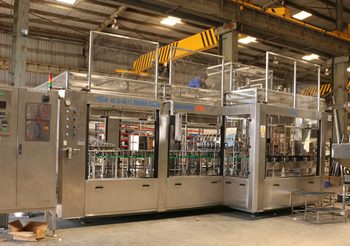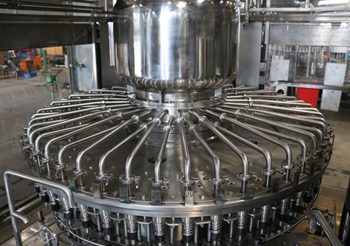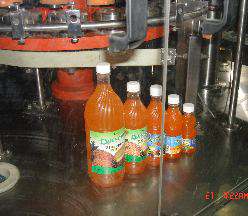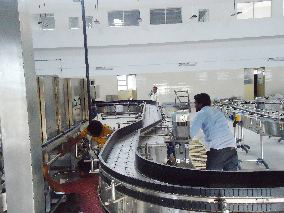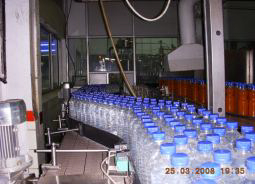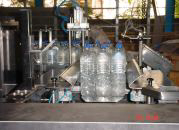
The beverage industry is one of the most dynamic and fast-moving sectors in the consumer market. With advances in technology, changing consumer tastes, new health trends, and complex supply chains, staying ahead of the competition requires a comprehensive understanding of key success factors in the industry. In this blog post, we’ll explore some of the most important elements for success in the beverage industry. From product innovation to marketing strategy and more, read on to learn about the different aspects that can make or break an organization in this highly competitive space.
The global beverage industry
The global beverage industry is a $1.4 trillion industry and is growing at a rate of 3.5% annually (Beverage Industry Association, 2014). The key success factors for companies in this industry are:
1. Strong distribution networks: In order to reach consumers globally, companies need to have strong distribution networks in place. This includes both physical infrastructure (e.g. warehouses, trucks, etc.) and relationships with distributors and retailers.
2. Innovation: Consumer preferences are constantly changing, so it is essential for companies to innovate in order to stay relevant. This could include developing new products, adopting new technologies, or finding new ways to market their products.
3. Branding: A strong brand is essential for success in the beverage industry. Companies need to create a unique and memorable brand identity that resonates with consumers.
4. Marketing: Effective marketing is critical for driving consumer demand. Companies need to invest in advertising and promotion to raise awareness of their products and generate interest among potential buyers.
5. Pricing: In order to be profitable, companies need to carefully consider their pricing strategies. They need to strike a balance between maintaining low prices to remain competitive and generating enough revenue to cover their costs."
The three key success factors in the beverage industry
The three key success factors in the beverage industry are:
1. Innovation
The beverage industry is constantly evolving and innovating to meet the ever-changing needs and desires of consumers. To be successful, companies must be able to identify and capitalize on new trends and develop innovative products that appeal to their target customers.
2. Branding
In a highly competitive marketplace, it is essential for companies to have a strong and recognizable brand. A well-established brand can help differentiate a company’s products from its competitors and build customer loyalty.
3. Distribution
To reach their target markets, companies need to have an effective distribution strategy in place. Having a robust distribution network can help ensure that products are available where and when consumers want them.
How these key success factors impact the industry
The beverage industry is complex and competitive, with many different factors impacting its success. Key success factors in the industry include product innovation, brand awareness, and customer loyalty.
Product innovation is essential for companies in the beverage industry to stay ahead of the competition. New products must be constantly developed to meet the ever-changing needs of consumers. To be successful, companies must be able to identify trends and anticipate consumer demand.
Brand awareness is another important factor for companies in the beverage industry. Customers must be able to easily recognize a company’s products and associate them with positive attributes. Strong brands can create customer loyalty, which is essential for long-term success in the market.
Customer loyalty is critical for companies in the beverage industry. To retain customers, companies must provide high-quality products and exceptional customer service. Strong relationships with customers can help to build brand equity and create a loyal customer base that will continue to purchase a company’s products.
The future of the beverage industry
The beverage industry is forecast to grow at a CAGR of 5.5% from 2019 to 2025. The major drivers of this growth are the health and wellness trend, premiumization, and the continued rise in global disposable income.
The health and wellness trend is showing no signs of slowing down, with consumers increasingly looking for healthier options when it comes to their drinks. This has led to a boom in the demand for functional beverages such as sports drinks, vitamin-infused waters, and plant-based milks.
Premiumization is another key trend that is shaping the future of the beverage industry. Consumers are willing to pay more for better-quality products, and this is especially true when it comes to drinks. Craft beer and premium wine are two examples of this trend in action, and it is also being seen in the spirits sector with the rise of small-batch artisanal spirits.
Finally, the continued rise in global disposable income is giving consumers more spending power, which they are using to purchase higher-priced items such as premium drinks. This is particularly evident in developing economies where there is a growing middle class with increasing disposable incomes.
Conclusion
The beverage industry is a highly competitive space. To be successful, companies need to stay ahead of the curve and leverage key success factors such as innovation, differentiated product offerings, cost savings measures, marketing strategies and supply chain management. With each factor played well, companies can benefit from improved operational efficiency while creating an engaging customer experience that will lead to long-term growth and profitability.
